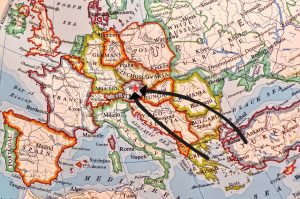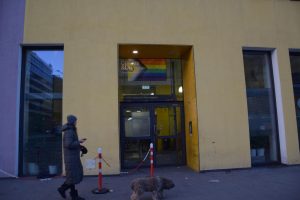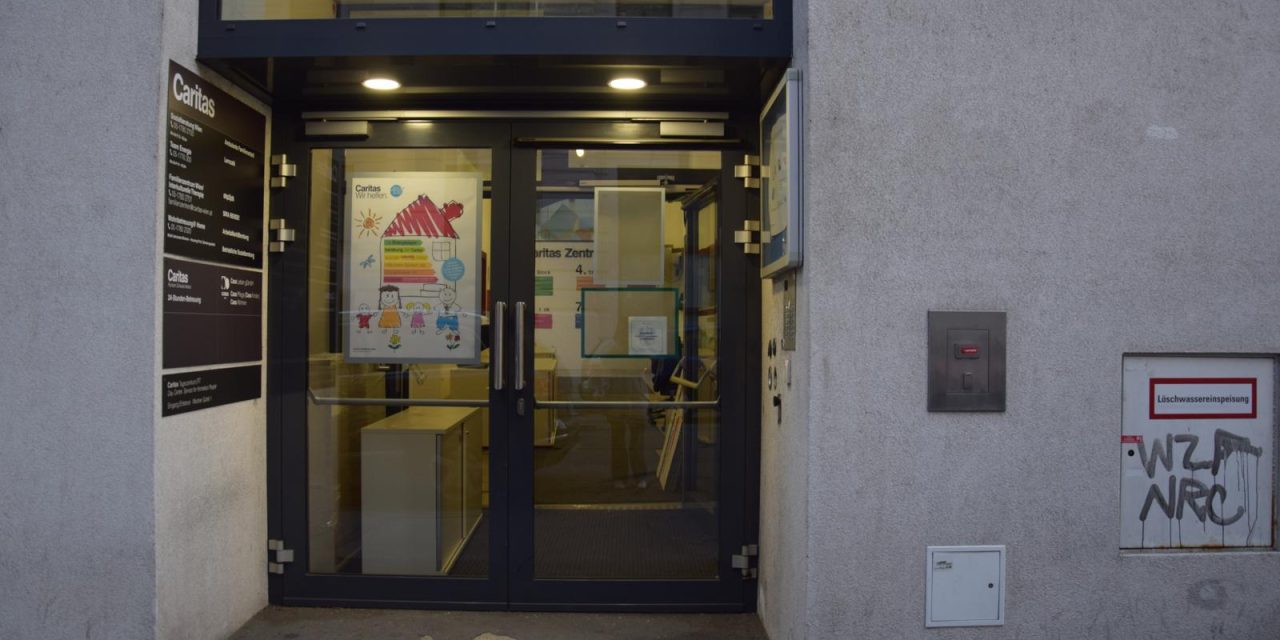Every year thousands of children arrive in Austria, they seek refuge, opportunities, and a place to call home. This article looks into the journey of these young migrants and the challenges they face in a system that’s supposed to protect them.
The Numbers
In 2023, over 59. 000 migrants arrived in Austria seeking asylum, of those, 4.946 were registered as unaccompanied minors, children who have been orphaned or made the journey by themselves. One of the main reasons Vienna is popular among asylum seekers is because of its geographic location with migration paths merging from the east, and the south. The minister of the Interior of Austria recognized that this high number of immigrants was due to the closeness of the Balkan Route.

The journey to Austria is long and dangerous, arriving there does not mark the end of the journey but the start of a new one. A journey through a complicated and broken system, where people fall through the cracks. According to an investigation led by the renowned journalist group, Lost in Europe, over 20,077 underage migrants have disappeared from Austria between 2021 and 2023. These numbers are shocking but what is even more disturbing is that we don’t know where they are. What we do know, is that the migration system in Austria and Europe needs a change.
Migration process
When an unaccompanied minor arrives in Vienna, they must ask for asylum at the police station of Traiskirchen. Then, from there the asylum procedure begins, and they are moved into a refugee center on the outskirts of Vienna. Afterward, they undergo an age assessment and have their case reviewed under the Dublin Regulation to determine whether they are eligible for permanent residence or provisional. In theory, this process should only take two weeks. Still, according to Lisa Wolfggard, who has been working with refugee orphans for almost 12 years, in practice, this process can take up to one year. Throughout this time these children are not allowed to leave the center, they have no guardians, no access to education, and are only provided with a legal counselor.
Even though a lot of disappearances happen during their arrival, there are other moments when children are vulnerable to running away. After they have received their residence permit, the minors are sent to shared flats run mostly by local NGO’s. Who gets a small amount of money to accommodate each child. But the funding is not enough and other regions in Austria are not accepting unaccompanied minors. Causing overcrowding, deterioration, and forced displacements from these types of housing.

Education for Integration
Vienna is a popular winter destination, with its famous Christmas markets, glowing street lights, and vibrant nightlife, the city radiates warmth and comfort. But most unaccompanied minors do not experience this side of Vienna. They experience a system that is unwelcoming and conservative Barbara Peschke, who worked as a teacher for over 30 years with refugee children, explains their experience of the education system in Austria and how this affects their chances for integration. For integration.
Integration is a vital part of our lives, whether we are children, teenagers, locals, or migrants, it is human nature to want to connect. But, society needs to become more inclusive as a whole, working together to support each other and leaving behind prejudice and judgment. Many projects around the city are being funded by the government to give these young people the support they need. Interface Wien is one of many organizations that provide education, counseling, and opportunities for integration. Listen to one of their collaborations, to integrate young migrants into Vienna.
Looking Ahead
Unaccompanied minors are vulnerable at different stages throughout their immigration process in Vienna. But it seems that most experts agree, the lack of guardianship and integration is to blame. Children and young people receive legal help, they receive housing but they also need someone to offer care and support.
The first step has been taken, as the government has approved a new guardianship law that we hope will significantly reduce the number of disappearances. According to new EU regulations each country will need to provide a temporary guardian for minors at the moment they have contact with any authority within any European State. And there should be a permanent guardian after 15 -25 days from the initial application. Lisa and her team hope this will be possible in the next two years. However, for now, we look ahead with uncertainty. As the far-right party takes over in Vienna, they’ve made their position clear on refugees.
“They know they have to implement this reform, and they have to think about the guardianship situation,” Lisa remarks
Still, advocacy groups continue fighting hard for the rights of children who deserve the same opportunities as anyone else. And we as a society should strive to be more inclusive and kind, it is our collective duty to protect and care for all children in our community.




